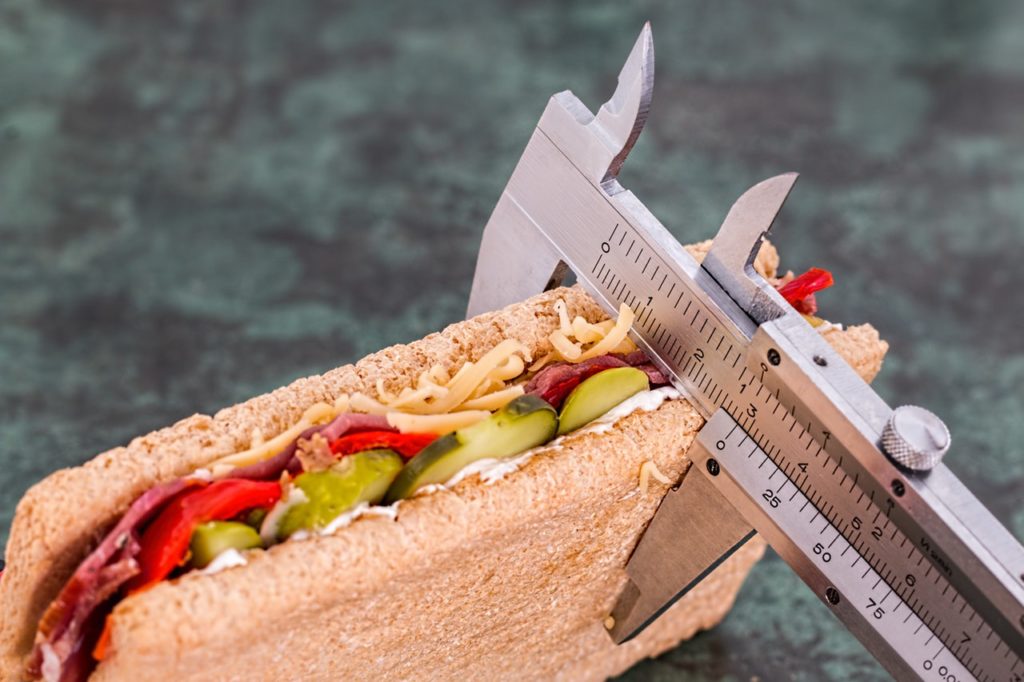I often get the question “Do I have an Eating Disorder?” Or, “How can I tell if I actually have an Eating Disorder?” I can be very difficult to tell if you have an eating disorder, and usually there is a slow slide into an eating disorder. Also in our culture today it’s really difficult to know what a healthy diet or a healthy relationship with food even looks like. Everywhere on Social Media and even in Nutrition research there are conflicting messages about how much to eat, what to eat, and when. So here are a few ways to tell if you really do have an Eating Disorder.
Your weight is objectively too low or too high for your height
This is a bit of a controversial statement, and I want to preface it with this: someone can absolutely have an Eating Disorder with a “healthy” weight for their height and body type. But just as a starting point, let’s look at your weight. The criteria for Anorexia Nervosa starts with someone’s weight. If your BMI is under-weight, then you are not eating enough for your body’s needs, and may have an eating disorder. On the other hand, if you weight is too high that your BMI is in the Overweight or Obese range, then it’s possible that your relationship with food may also be unbalanced, in that you are eating too much. Binge Eating Disorder is a Disorder where people Binge-eat (systematic over-eating) and feel that they are out of control with food. They know that they are eating too much in one sitting (usually in secret and feel shame an/or guilt about it), and they feel that they cannot stop themselves. This usually leads to weight gain, and this is reflected in BMI.
If you’d like to calculate your own BMI, you can use the calculator here at the National Institute of Health website.
You are overly anxious or scared about gaining weight
One of the hallmark features of an Eating Disorder is an irrational fear of gaining weight. This fear is not necessarily related ro your weight. You can be a healthy weight or under-weight and the fear it still there. It usually manifests in Magical Thinking or irrational beliefs about food and weight. Here are some examples that I’ve heard often from my clients:
- I can’t drink water because it will make me gain weight
- I know my doctor says I need to eat around 2,000 calories per day, but I don’t trust her and she’s trying to make me fat
- I can be perfectly healthy on 1,000 calories a day or less
- I can’t touch an oily food because the calories will ‘sink in’ and I will gain weight
- If I start eating I won’t be able to stop and will gain weight
- Eating that 200-calorie bagel will certainly make me gain 5 pounds
These are just a few of the irrational beliefs that I’ve heard. You might have stumbled upon your own. The thing to pay attention to is the intense fear and anxiety around weight that isn’t driven by a desire for overall health, but is about weight itself.
If food was a person in your life, your relationship with that person would be toxic
A good way to tell if you are moving into Disordered Eating is to imagine that food is a person that you have a relationship with, like a friend. Then describe that relationship. Is it kind, supportive, easy and peaceful? Or is it toxic, harsh, obsessive and co-dependent? Do you structure your entire day around food? Does it feel like food is a voice in your head that’s abusive? Telling you you’re weak or not good enough? If your relationship with food is toxic, this is a problem and you deserve better. Food is both a tool for health and energy to support your life, and also something to enjoy and connect with others around. Once it starts to become an obsession, or a way to punish/reward yourself, you are moving into unhealthy territory.
If you are curious about your own relationship with food, or if anything in this article struck a chord with you, you can always call Thrive Counseling for a free consultation to get an expert opinion. You can also check out our Eating Disorder Therapy page.

